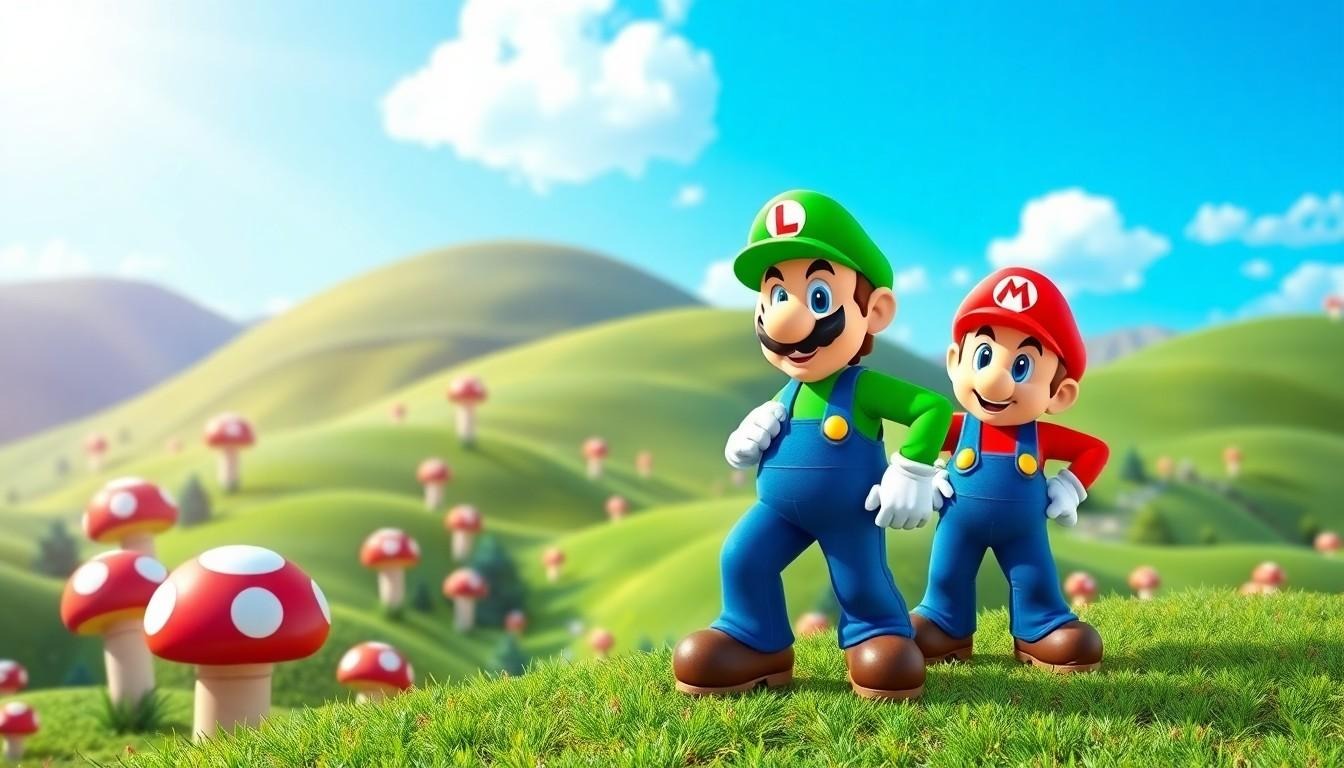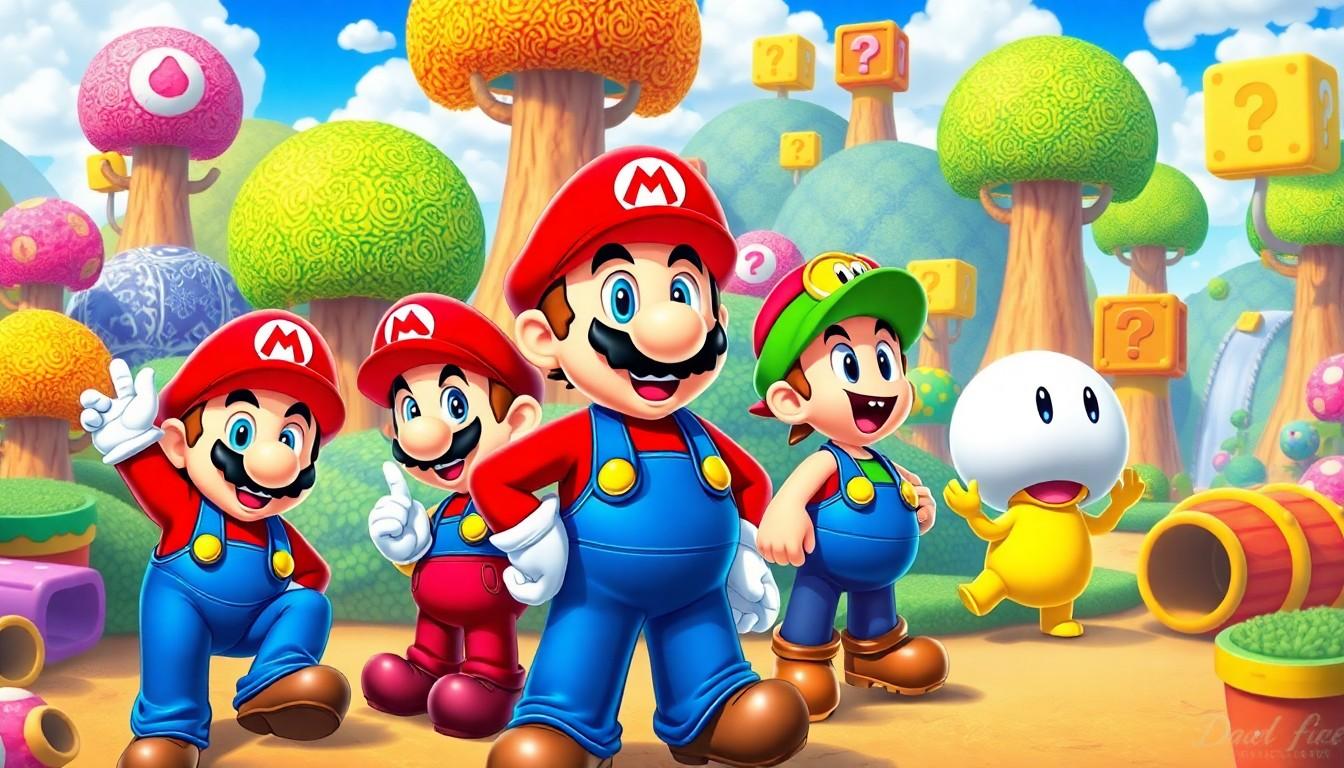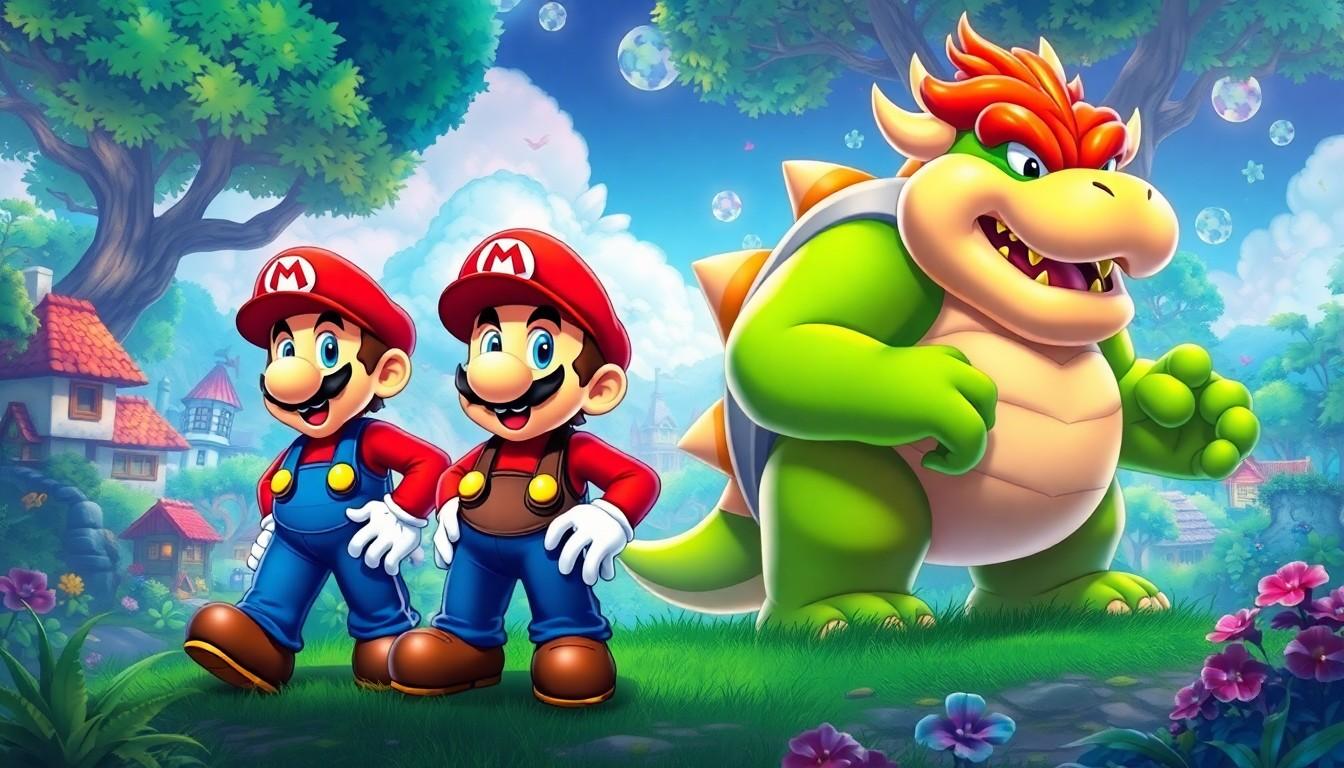Phone:
(701)814-6992
Physical address:
6296 Donnelly Plaza
Ratkeville, Bahamas.

In the whimsical world of gaming, few characters are as beloved as Mario, the plucky plumber who’s jumped his way into the hearts of millions. But what happens when Mario trades his overalls for an RPG adventure? He dives into a realm where turn-based battles, quirky companions, and epic quests reign supreme. Mario RPG games aren’t just a spin-off; they’re a delightful mash-up of nostalgia and strategy that keeps players coming back for more.
Mario RPG games blend classic platforming with role-playing elements, drawing in players with their engaging storytelling and strategic gameplay.
Mario RPG games debuted with Super Mario RPG: Legend of the Seven Stars in 1996, developed by Square. This title marked Mario’s initial venture into the RPG genre. Paper Mario followed in 2000, introducing a unique art style and turn-based combat, further expanding the franchise. In 2003, Mario & Luigi: Superstar Saga introduced a new take on the series, emphasizing humor and character interaction. Each game built on the last, evolving mechanics and storytelling. Recent titles, including Paper Mario: The Origami King in 2020, offer fresh perspectives while maintaining a nostalgic connection to earlier entries.
Mario RPG games feature turn-based combat, requiring strategy to defeat enemies. Players encounter various companions, each offering unique abilities that aid in battles and puzzles. Exploration remains a key feature, unveiling secrets throughout vibrant worlds. Quirky dialogue often adds humor, enhancing character development. Additionally, leveling up characters unlocks new skills and improves stats, emphasizing progression within the game. Mini-games and side quests provide opportunities for players to engage beyond the main story. Rich visuals and soundtracks further immerse players in this captivating realm of Mario adventures.

Mario RPG games feature memorable titles that have captured the hearts of fans over the years. Each game offers a distinct experience, combining rich stories and engaging gameplay.
Released in 1996, Super Mario RPG: Legend of the Seven Stars marked the beginning of Mario’s RPG adventures. Collaboratively developed by Nintendo and Square, it introduced players to turn-based combat and innovative storytelling. Characters like Geno and Mallow joined Mario on his quest to defeat Smithy. This title remains a classic, known for its unique blend of humor and emotional depth. Players appreciate its charm and impactful narrative.
The Paper Mario series debuted in 2000, featuring a visually striking paper art style. Each title explores Mario’s universe through RPG mechanics and engaging plots. Notable installments include Paper Mario: The Thousand-Year Door and Paper Mario: Sticker Star. Players enjoy the humor interspersed with clever puzzles, diverse companions, and strategic battles. The series maintains a lighthearted tone while delivering intricate gameplay experiences.
Mario & Luigi, starting with Superstar Saga in 2003, takes a different approach by emphasizing cooperative gameplay between the brothers. The series incorporates humor and quirky dialogue that resonate with fans. Each game introduces new mechanics and diverse settings, like Mario & Luigi: Bowser’s Inside Story. Players engage in turn-based combat with an array of unique abilities. This series stands out for its creative storytelling and character interactions.
Mario RPG games showcase engaging gameplay mechanics that enhance the overall experience. The combination of strategic elements and interactive storytelling keeps players invested in the journey.

Turn-based combat defines the core of Mario RPG games. Players take turns executing actions during battles, allowing for strategic decision-making. Selecting attacks, using items, and employing skills requires careful planning. Mario’s unique abilities and those of his companions provide various tactical options. Timing can influence the effectiveness of attacks, adding an interactive layer. Each action impacts foes differently, demanding players stay on their toes. This engaging combat system captures attention, making battles enjoyable and rewarding.
Exploration and puzzle solving play significant roles in shaping the Mario RPG experience. Players traverse vibrant environments filled with hidden secrets and collectibles. Each location offers distinct challenges and surprises, encouraging players to explore thoroughly. Puzzles often require utilizing Mario’s abilities or those of his allies. Completing these puzzles unlocks new areas and rewards, enhancing motivation. Interactivity with characters throughout the game adds richness to the narrative. Engaging dialogues and quirky interactions deepen the immersion within the game world.
Character development plays a crucial role in Mario RPG games, creating memorable experiences for players.
Mario RPGs feature iconic characters that resonate with fans. Mario, the adventurous plumber, often leads the charge, supported by a diverse cast like Luigi, Princess Peach, and Bowser. These characters enrich the narrative with their distinct personalities and backgrounds. Geno and Mallow from Super Mario RPG: Legend of the Seven Stars introduce unique abilities, providing depth to gameplay. Additionally, characters such as Paper Mario’s Toads bring humor and charm to the scenes. The variety helps construct immersive worlds, making the player feel connected with each character’s journey.
Character progression is integral to gameplay in Mario RPGs. Players level up characters like Mario and Luigi, unlocking new abilities and skills. Progression includes acquiring new equipment, enhancing stats, and mastering techniques specific to each character. The emphasis on unique abilities makes team composition essential in battles. For example, Mario’s jump attacks pair well with Bowser’s raw strength, adding strategic depth. Earning experience points during battles solidifies growth, encouraging players to explore different strategies for character development.
Mario RPG games significantly shape gaming culture. Their unique combination of humor, strategy, and storytelling enriches the gaming experience for players.
Mario RPG games play a pivotal role in the RPG genre. They introduce accessible gameplay mechanics, appealing to both newcomers and seasoned fans. Titles like Super Mario RPG: Legend of the Seven Stars set a standard for storytelling in RPGs. Innovative turn-based combat mechanics influenced later RPGs by emphasizing timing and strategic decision-making. Elements such as character dialogue and quirky sidekicks expand narrative depth, inspiring developers across the genre. The creativity seen in the Mario RPG series continues to inspire projects that blend narrative and mechanics, enhancing the landscape of role-playing games.
The fan community surrounding Mario RPG games thrives on nostalgia and engagement. Players connect over shared experiences, creating a vibrant online culture. Forums and social media platforms host discussions about favorite characters and memorable moments. Fan art, mods, and speedruns demonstrate creativity and dedication within the community. Events such as conventions provide opportunities for fans to celebrate their love for Mario RPGs together. This active involvement fosters a sense of belonging, solidifying the series’ impact on gaming culture through lasting connections among fans.